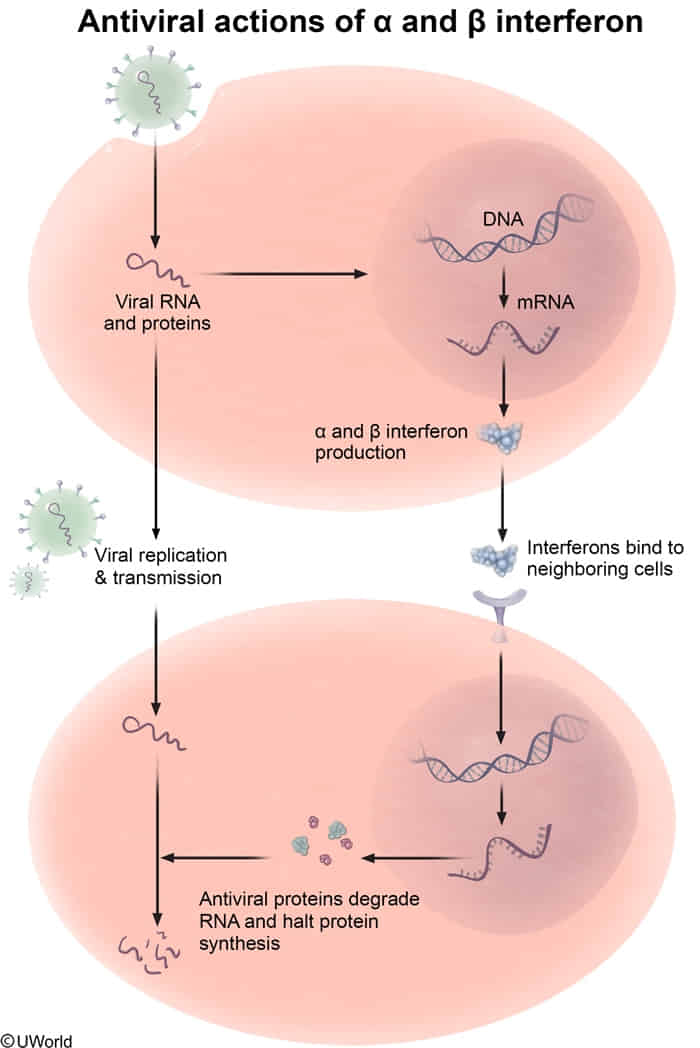Overview of Interferons
Type I Interferons

Interferon Alpha (IFN-α)
- Mainly Secreted By:
- Virus-infected cells and malignant cells
- Fibroblasts (interferon-β)
- Function:
- Acts as the first line of defense against all viral infections
- Inhibits viral protein synthesis by activating ribonuclease L, leading to the degradation of cellular and viral mRNA
- Promotes the expression of MHC class I molecules, aiding in the recognition of virus-infected cells and activation of NK cells and cytotoxic T cells
- Inhibits megakaryocyte stem cell differentiation and proliferation
- Therapeutic Use:
- Side Effects:
- Flu-like symptoms (fever, chills)
- Depression
- Myopathy
- Neutropenia
- Interferon-induced autoimmunity
- Gastrointestinal issues (nausea, vomiting, diarrhea)
- Itchy skin
Interferon Beta (IFN-β)
Type II Interferons
Interferon Gamma (IFN-γ)
- Mainly Secreted By:
- Th1 and NK cells (when stimulated by IL-12 from macrophages or antigen contact)
- Function:
- Activates macrophages to increase phagocytosis (positive reinforcement) and NK cells to eliminate virus-infected target cells
- Synergistic effect with tumor necrosis factor in stimulating macrophages to form granulomas, crucial against mycobacterial infections
- Suppresses a Th2 response (negative feedback)
- Promotes the expression of MHC class II molecules and antigen presentation in every cell
- Stimulates antigen class switching to IgG3
- Therapeutic Use:
